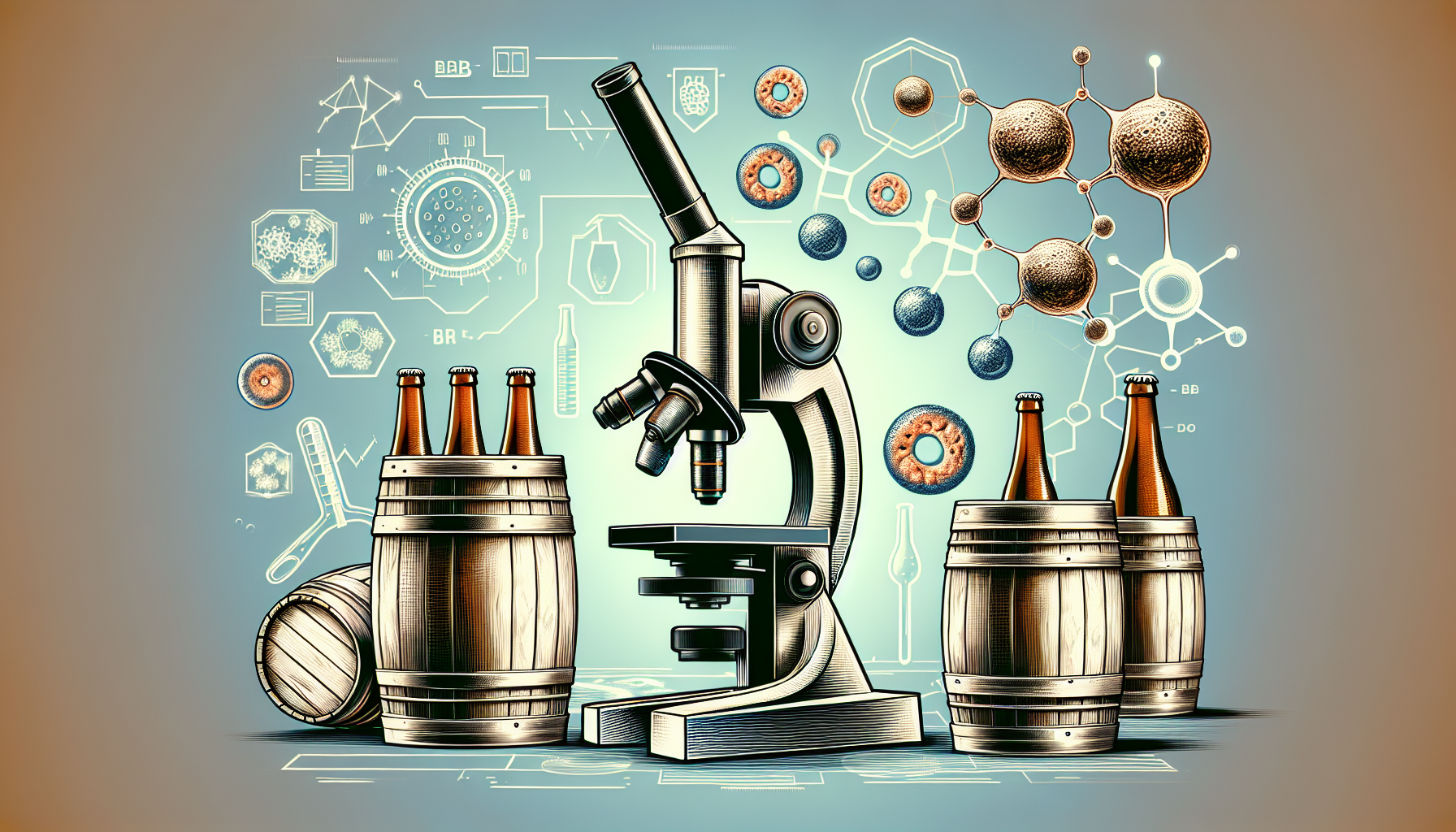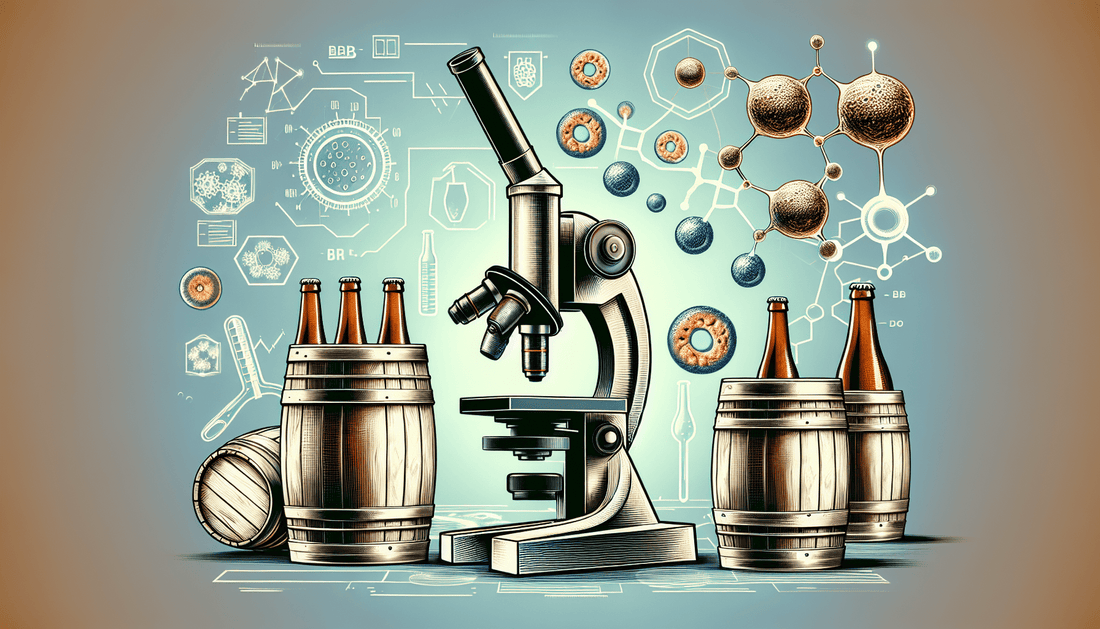How Belgian Beer Shaped Modern Medicine

In this blog we explore how Belgian beer has shaped modern medicine and the surprising connections between brewing and medical breakthroughs. Discover the fascinating stories behind the science of yeasts and their influence on the development of medical techniques.
Introduction to the role of beer in human history 🍻
Beer is more than just a refreshing drink; it plays a crucial role in human history. People have been brewing beer for thousands of years, which is not only a source of pleasure, but also fulfills an important social and cultural function. The production and consumption of beer has contributed to the development of societies, agricultural techniques and even medical science.
From the ancient Egyptians who used beer in religious rituals to the medieval breweries that helped cities grow, beer has always occupied a central place in human culture. The connection between beer and medicine stems from the fact that it was often seen as a safe drink in times when water was often contaminated. This made it an important source of nutrients for many communities.
The search for the perfect pint 🍺
The search for the perfect pint is a story of experimentation and innovation. Over the centuries, brewers have developed various techniques to improve the taste, aroma and quality of beer. This process has not only led to the creation of different types of beer, but also paved the way for scientific discoveries that go beyond the beer industry.
Perfecting the brewing process has led to the development of new ingredients and methods. This has not only improved the taste of beer but also contributed to the growth of medical science. The focus on hygiene and the role of yeast are just some of the important discoveries that emerged from this search.
What is yeast and why is it important? 🦠
Yeast is a microscopic fungus that is essential to the fermentation process. It is responsible for converting sugars into alcohol and carbon dioxide, which is the basis for brewing beer. But the role of yeast extends beyond just alcohol production. It also has important implications for health and medicine.
Yeast is often considered a living organism, and the interaction between yeast and other microorganisms is crucial to the quality of the beer. Understanding yeast has led to significant scientific breakthroughs, including insights into fermentation processes that also apply to medicine.
The early discoveries about yeast 🔍
The first discoveries about yeast come from a time when people did not fully understand what it was. Yeast was often seen as a mysterious element. Brewers used yeast without knowing exactly what it did, but they knew it was essential for making beer.
Over the centuries, scientists have tried to understand the role of yeast. Experiments with yeast have led to important discoveries about fermentation and microbiology. These early discoveries laid the foundation for later scientific studies and innovations in medicine.
Louis Pasteur and the discovery of fermentation 🧪
Louis Pasteur, one of the most influential scientists of the 19th century, thoroughly studied the role of yeast in fermentation. His research into yeast not only improved the beer industry, but also laid the foundation for modern microbiology. Pasteur discovered that yeast is responsible for the process of fermentation and that life in yeast is essential for the production of high-quality beer.
His discoveries about fermentation have also influenced other sectors, including the wine industry and medicine. Pasteur's work showed that understanding microorganisms is essential for improving food safety and preventing disease.
'The influence of Pasteur on the wine industry 🍷'
Pasteur's research not only influenced the beer industry, but also had significant consequences for the wine industry. His discoveries allowed wine production to be improved, leading to higher quality and less waste. His recommendations for pasteurization have ensured that wine has a longer shelf life and is less likely to spoil.
These innovations have forever changed the way wine is produced and consumed. The techniques that Pasteur developed for the wine industry have also been applied in other sectors, including the production of dairy products and the pharmaceutical industry. The connection between beer, wine and medicine remains a fascinating subject of study.
The challenges in the beer industry 🍺
The beer industry faces several challenges that affect the production and quality of beer. From climate change to resource scarcity, brewers must continually innovate to overcome these obstacles. There is also the constant pressure to meet changing consumer preferences.
Climate change is affecting the cultivation of barley, an essential ingredient in beer. Extreme weather conditions can reduce yields and affect quality. This not only has consequences for prices, but also for the availability of certain types of beer.
In addition, there are increasingly strict regulations and standards in the field of food safety. Brewers must ensure that their products meet these requirements, which puts additional pressure on production processes.
The discovery of pasteurization 🧪
The discovery of pasteurization by Louis Pasteur was a turning point for the beer industry. This technique, originally developed to protect wine from spoilage, was soon applied to beer. The process involves heating liquids to a certain temperature to kill harmful bacteria without affecting the taste.
Pasteurization has not only extended the shelf life of beer, but also improved its overall quality. By eliminating unwanted microorganisms, brewers can deliver a consistent product. This has led to greater acceptance of beer as a safe and reliable drink.
Through pasteurization, brewers have not only improved their product, but also contributed to broader food safety. This has been a crucial step in the development of modern medicine and food technology.
The connection between beer and modern medicine 🏥
The connection between beer and modern medicine is fascinating and profound. As previously discussed, the study of yeast and fermentation led to important health innovations. The discovery of the role of microorganisms has revolutionized our understanding of diseases and infections.
By applying techniques such as pasteurization in beer production, a model was developed that was also applied in medicine. The idea of controlling and manipulating microorganisms has paved the way for vaccine development and other medical breakthroughs.
Lessons learned from the beer industry have contributed to the development of methods for preventing infections, which is essential in modern medicine. This shows how the science of brewing has not only influenced the culinary world, but has also been crucial to public health.
Joseph Lister and his revolutionary techniques 🩺
Joseph Lister, a pioneer in antiseptic surgery, drew inspiration from the discoveries of Louis Pasteur. He understood that cleaning wounds with antiseptics could drastically reduce the risk of infection. This was especially important at a time when surgeries often resulted in fatal infections.
By employing techniques such as using acid to clean wounds, Lister changed the way surgeons interacted with patients. His methods led to a dramatic drop in post-operative infections.
The impact of Lister's work on medicine cannot be overstated. His techniques are now standard in hospitals around the world and have saved millions of lives. This shows how the interaction between beer, yeast and medical science has reinforced each other.
The lasting impact of these discoveries 🌍
Pasteur and Lister's discoveries not only changed the beer industry, but also the way we understand and practice medicine. Their work led to the development of modern microbiology and antiseptic techniques, which are crucial to medical practices today.
The lasting impact of their discoveries is visible in the way we deal with infectious diseases and vaccine production. The techniques developed in the context of beer production are now essential for public health.
In the future, these principles will continue to evolve, with new technologies building on the foundations laid by these pioneers. The story of how Belgian beer shaped modern medicine is a testament to the power of science and innovation.





